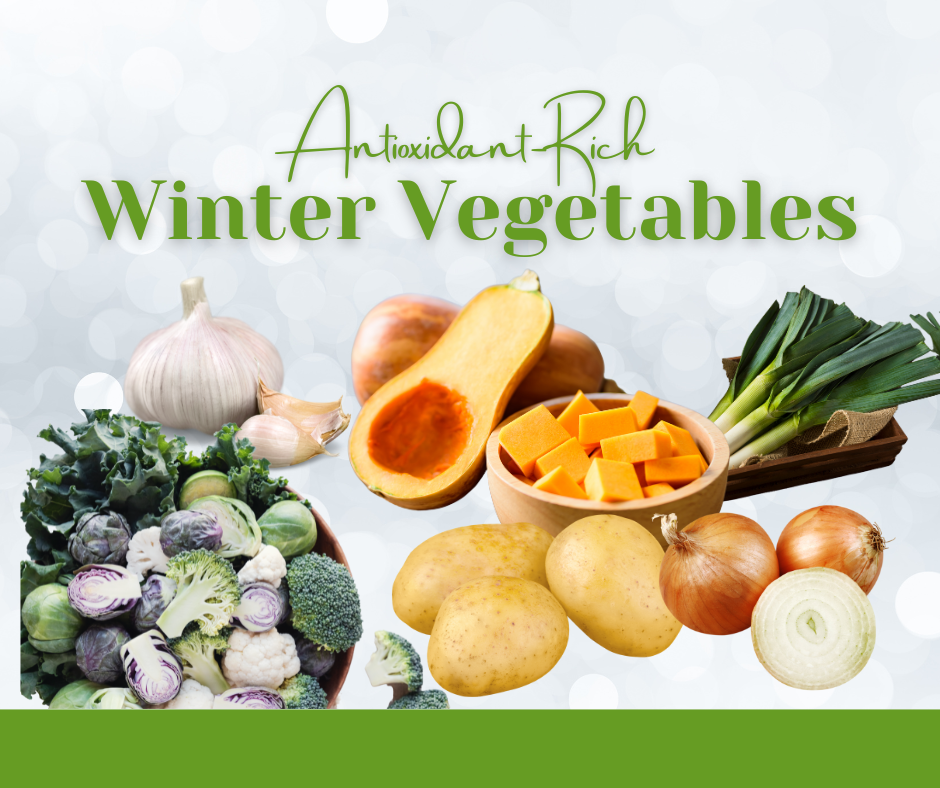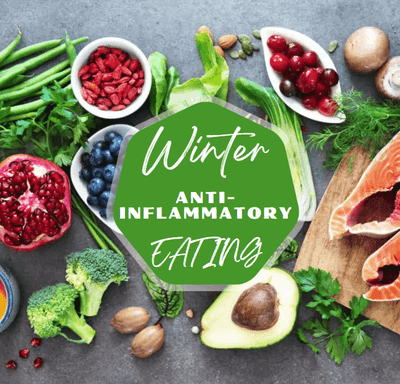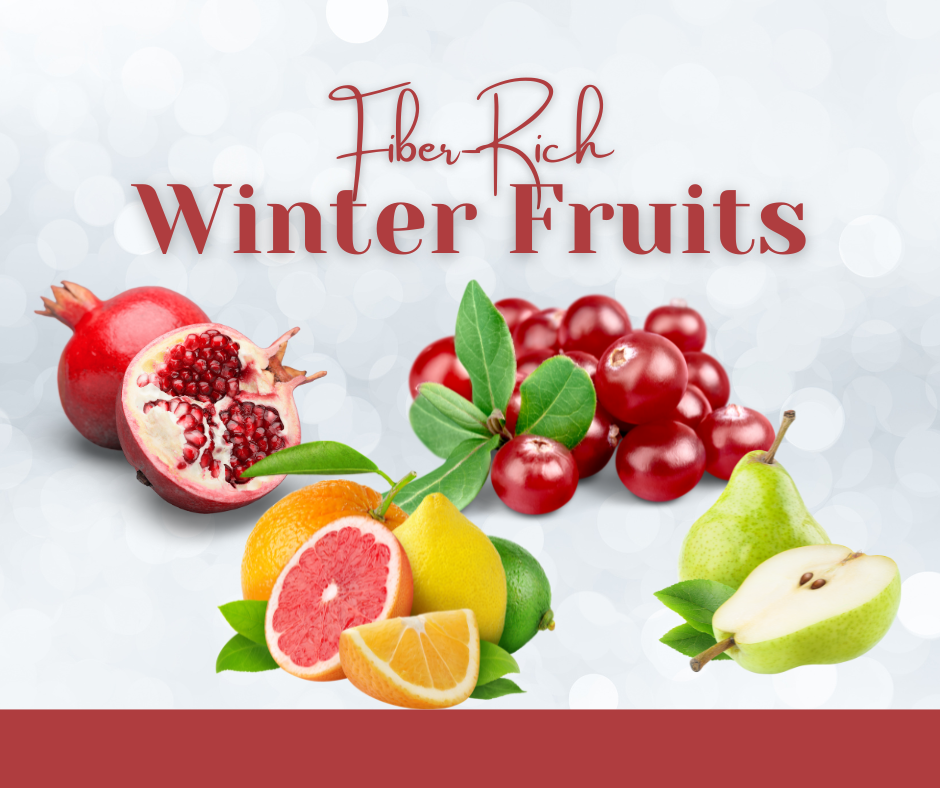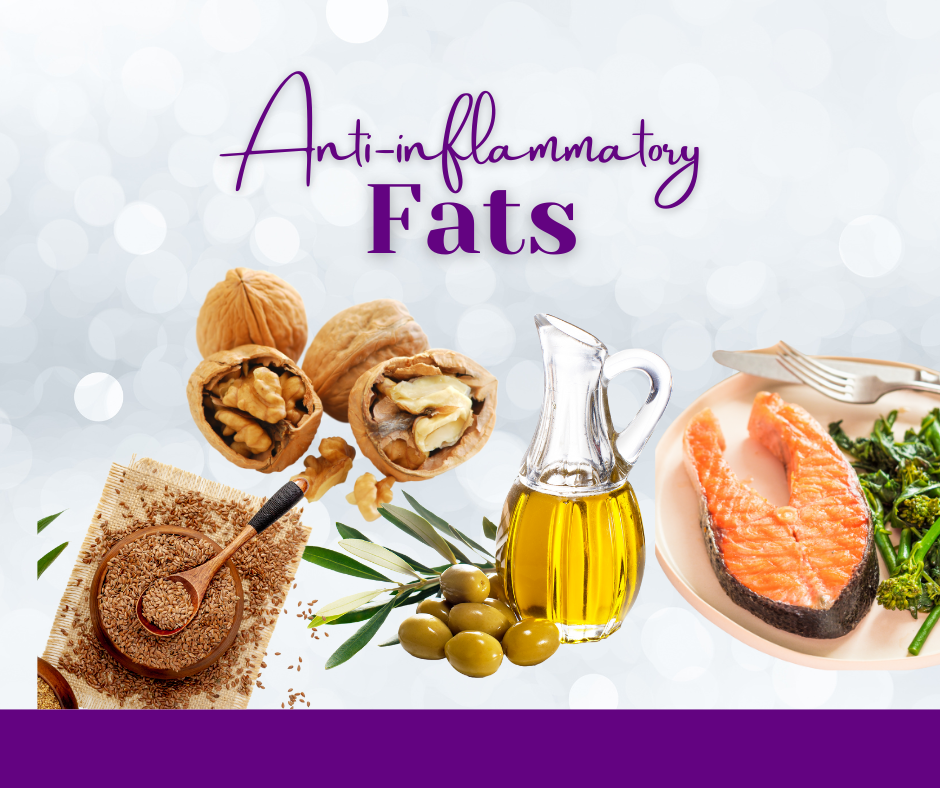What to Eat This Winter to Lower Inflammation
Picking the right foods can help fight inflammation, while the wrong ones can accelerate the inflammatory disease process. Wintertime can be filled with many pro-inflammatory foods and habits. Alcoholic drinks, sugary coffee drinks and hot chocolates, heavy comfort foods, abundant sweets, and a lack of sleep and exercise all have the potential to contribute to inflammation. However, this season is also filled with many nutrition superstars that are full of anti-inflammatory properties and there are many opportunities for healthy lifestyle practices which can help you feel better.
Inflammation gets a bad rap as too much or chronic inflammation can wreak havoc on the body. However, inflammation can also be a good thing. Inflammation is a natural, protective body process to help it heal from infection or injury. On the other hand, research has shown that ongoing inflammation is connected to many different health conditions such as type 2 diabetes, heart disease, dementia, obesity, cancer, and autoimmune diseases.
Focusing on a balanced, varied diet, such as the Mediterranean Diet, can enhance the immune system and provide antioxidants that can decrease the stress of inflammation. Let’s take a closer look at which foods to focus on (and eat less of) to help combat the inflammatory process and improve your health during the colder months.
Winter Anti-inflammatory Foods
Colorful, plant-based foods are the key to reducing inflammation, some foods to eat regularly to combat inflammation include:
Cold-Weather Fruits
- Pomegranate
- Citrus Fruits
- Pears
- Cranberries
Inflammation biomarkers improve when individuals eat a higher-fiber diet. Fruit can be a great source of fiber and shouldn’t be feared or avoided. Fiber-rich foods can help people maintain a healthier body weight, feed beneficial bacteria in the gut, and can also provide healthy phytonutrients (plant chemicals found in high-fiber fruits, vegetables, and whole grains).
This winter, plan to have nature’s original dessert in place of processed sweets. Be creative with ways to incorporate winter fruits into your daily diet such as topping salads, as an easy snack, or diced in warm oatmeal or yogurt.
Fun fact: Pomegranate’s antioxidant power is thought to be higher than that of red wine or green tea!
Hearty, Winter Vegetables
- Dark, Leafy Greens (Kale, spinach, Swiss chard)
- Winter Squash (acorn, butternut, delicata, Hubbard, spaghetti)
- Cruciferous Veggies (broccoli, cabbage, Brussels sprouts)
- Potatoes
- Allium vegetables (onions, garlic, shallots)

These winter vegetables are excellent sources of vitamins, minerals, and antioxidants like quercetin, kaempferol, beta-carotene, alpha-lipoic acid, betalains, and other powerful antioxidants known to reduce inflammation.
Some ideas for incorporating these nutrition superstars into your diet this winter, include adding shredded Brussel sprouts or cabbage to salads, slaws, or wraps; roasting onions, garlic, squash, and potatoes for an easy side dish; adding parsnips to soups, or making a winter salad with hearty greens and topped with a mixture of other vegetables on this list.
Fun fact: One cup of collard greens has over 25% of the recommended amount of calcium. It is also high in vitamin K which also helps to strengthen bones and reduce the risk of osteoporosis and fractures.
Holiday, Healthy Fats
- Walnuts
- Olives/Olive Oil
- Fatty fish such as salmon, sardines, mackerel, herring, and tuna
- Seeds such as flaxseed, chia seeds, and hemp seeds
Unsaturated fat should be included regularly in the diet to help combat inflammation. They also are known to improve blood cholesterol, improve brain health, and help you absorb certain vitamins. There are two different types of healthy unsaturated fats: monounsaturated fats and polyunsaturated fats.
Focusing on healthy fats this time of year isn’t difficult. The best sources of omega 3’s (a polyunsaturated fat that the body must get from the diet) include fatty fish, ground flaxseed, walnuts, and olive oil. Plan on including these healthy fats in meals and snacks. Add ground flaxseed into baked goods and sprinkle into recipes. Top salads with walnut and an olive oil-based dressing. Swap beef and pork main dishes with baked or broiled fish.
Fun fact: In a scientific literature review, it was found that EPA and DHA, the types of omega-3 in seafood and fish oil, lead to less morning stiffness, less joint swelling and pain, and less need for anti-inflammatory drugs in people with rheumatoid arthritis.
Other Anti-inflammatory Foods
- Beans/Lentils
- Fermented Dairy
- Dark Chocolate
- Green Tea
- Whole Grains
- Turmeric
- Ginger
Winter Pro-Inflammatory Foods
Foods that can promote inflammation often can be found throughout the year, but in the winter months may be more prevalent due to the holidays, lack of fresh produce, and more. The following foods should be limited to help reduce inflammation.
- Refined Carbohydrates like white bread, pasta, and rice.
- Sugar-sweetened Drinks such as sweetened coffees/teas, sodas, punches, and juice drinks.
- Processed/Red Meat such as bacon, sausage, hot dogs, and high-fat beef.
- Trans fats may be found in certain pre-packaged treats found this time of year as well as in many fried foods and margarines.
- Sweets/Desserts such as pastries, cookies, sweetened yogurts or cereals, and granola bars.
Many of the foods on this list are also foods that do not offer any health benefits and eating more of these foods is also linked to an increased risk for chronic diseases, such as type 2 diabetes and heart disease. Eating many of the pro-inflammatory foods can contribute to a higher calorie intake leading to weight gain which is another risk factor for inflammation.
It's important to consider that while food choices are one factor that may impact inflammation, many other factors can also directly impact inflammation in the body. For example, high levels of stress, lack of sleep, too little physical activity, smoking, and high blood pressure can also raise inflammation in the body.
Studies have shown that people carrying extra pounds, especially around their midsection, increase inflammatory compounds, particularly C-reactive protein (CRP). Obese individuals generally have a higher level of CRP, and this level goes down with weight loss. Regular exercise, around 30 minutes daily, has also been shown to decrease CRP levels.
Bottomline: following a healthy, balanced diet, controlling stress, getting moving, and maintaining a healthy weight are the keys to improving inflammation during the winter months and beyond.
Wishing you a very happy and healthy holiday season!










 Weight Loss
Weight Loss Health & Wellness
Health & Wellness Diabetes
Diabetes Heart Health
Heart Health Motherhood & Family
Motherhood & Family Dietary Restriction
Dietary Restriction Other Health Conditions
Other Health Conditions About SSHE
About SSHE


